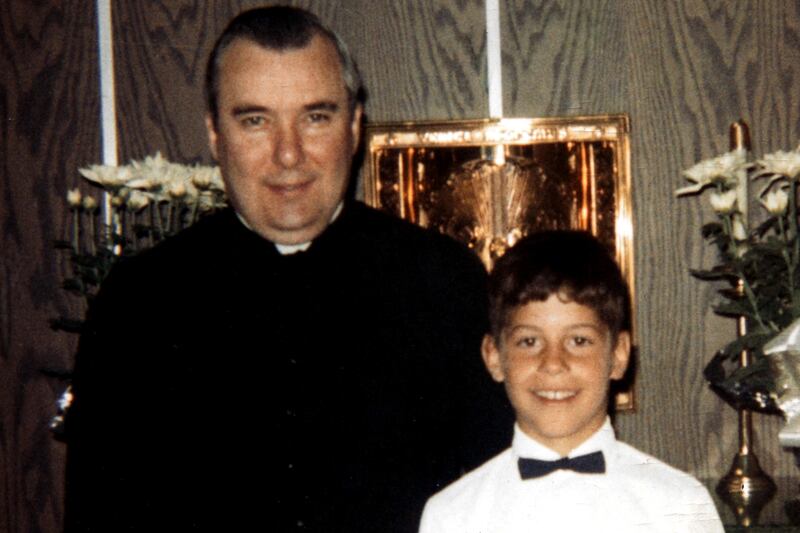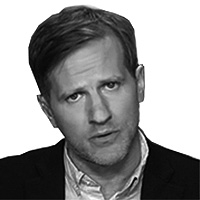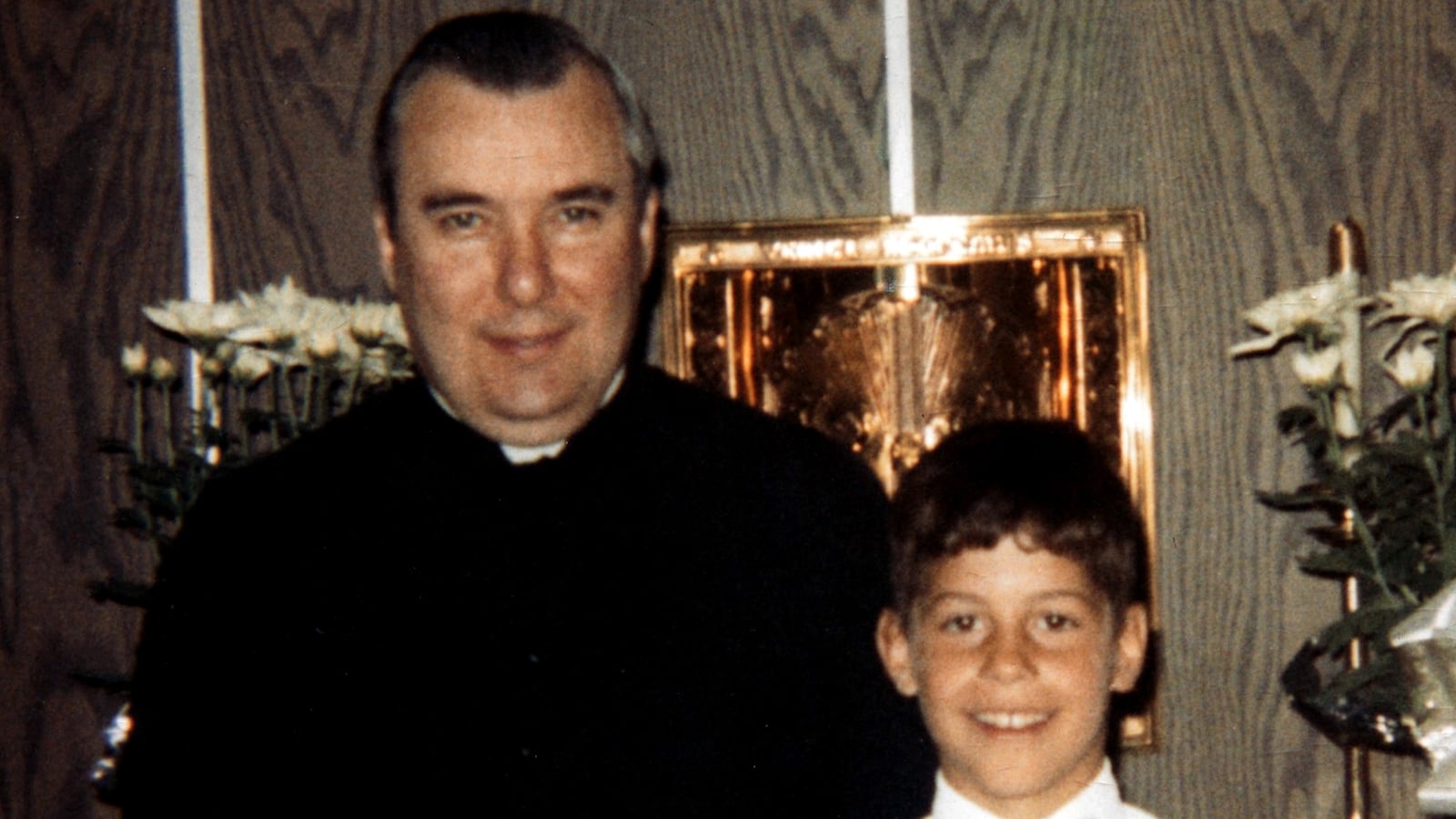Some popular documentarians—like Michael Moore and Ken Burns—allow themselves years to obsess over a project, shooting hundreds of interviews and endlessly tinkering with edits. That’s not a method that interests Academy Award–winning filmmaker Alex Gibney, the director of such critically lauded documentaries as Taxi to the Dark Side, about the death of an Afghan taxi driver at the hands of American soldiers, and Enron: The Smartest Guys in the Room, which delves into the backstory of the firm’s scandalous collapse. In 2011 alone, Gibney directed four feature-length films. He’s currently promoting two of them: the forthcoming We Steal Secrets: The Story of WikiLeaks, which debuted last month at the Sundance Film Festival—and has already been denounced by mercurial WikiLeaks boss Julian Assange—and Mea Maxima Culpa: Silence in the House of God, premiering tonight on HBO. (Between promotional engagements, Gibney is also completing his investigation into disgraced cyclist Lance Armstrong.)

Gibney’s most affecting films scrutinize institutions he considers irredeemably corrupt—the United States government, the lobbying industry, the war on terror. With Mea Maxima Culpa, he turns his critical lens on the child-molestation scandals that have consumed the Catholic Church, along with the church’s shameful record of denial, obfuscation, and omertà. Gibney, whose late stepfather was the Rev. William Sloane Coffin, the famous radical theologian, focuses on the Rev. Lawrence C. Murphy, a Roman Catholic priest in Milwaukee who sexually abused hundreds of deaf boys under his spiritual care. When news of the molestation was brought to the attention of church authorities, Murphy, like many other priests accused of abuse, was merely relocated to a different church while his victims were ignored—a policy, Gibney argues, determined by the Vatican itself.
The Daily Beast spoke with Gibney about Pope Benedict XVI’s culpability in the scandal, the church’s policy of forced celibacy, and a backlash of criticism of his film from a prominent victims’ group.
The Daily Beast: Explain the title of the film.
Gibney: There’s a point in mass when you beat your chest three times and say “Mea culpa, mea culpa, mea maxima culpa.” In my day, it was translated “through my fault, through my fault, through my most grievous fault.” That seemed to me a pretty good title for the film. It’s followed by the subtitle Silence in the House of God, which has a double meaning in this context, both because of the deaf survivors and the crimes that the church was silently overseeing.
The story of sex abuse in the Catholic Church has been told in a number of other recent documentary films. Why retell the story?
There were two things: this local case, the Milwaukee case, uncovered documents that lead straight to the top, straight to Joseph Ratzinger—then-cardinal Ratzinger, now Pope Benedict. So you could see this sex-abuse crisis not as a few bad apples, but evidence of a rotten barrel. The other thing was, for all the darkness about this story, it was oddly inspirational for me. These guys at the heart of the story, these deaf men, mounted the very first public protest of clerical sex abuse in the United States. This is a case where a priest abused 200 deaf children. What more heinous crime could you imagine? But the victims, who were so marginalized because they couldn’t speak to a hearing audience, nevertheless managed to have a huge impact—from a small parish in Milwaukee all the way to the top of the Vatican.
You point out in the film that the same thing—Catholic priests assaulting deaf children—happened in Verona, Italy. Was this deliberate strategy, to attack children who were even more defenseless than the average child?
I think you have to see it as pure predatory behavior. We can accept that there are predators everywhere—Boy Scouts, Penn State—but what the Catholic Church is clearly responsible for is harboring those predators, not punishing them, moving them around [to other parishes]. For a long time, the church has said that clerical sex abuse could either be blamed on the 1960s or the United States—the licentiousness of the country, that’s the problem. We didn’t know about the Verona case when we started the film. It was an exact parallel to the case in Milwaukee. The priests “reach out” to those deaf students because they are helpless. In fact, we found out in Milwaukee that the priests particularly sought out kids whose parents could not sign. So the predator priest (who could sign) was actually an intermediary between the kids and their parents. Horrible.
There is a bit in the film about forced celibacy. But these priests aren’t seeing prostitutes. And we see this happening, for instance, in the Orthodox Jewish community in Brooklyn right now. Is there something particular to the church here? Is there something about religion that allows this to happen?
What’s peculiar about the Roman Catholic Church is that at the heart of its doctrine is a lie—the lie of forced celibacy. One of the former priests ... did a study for the church to try to understand the sex lives of priests and found that over 50 percent of priests, that he could ascertain, were not observing celibacy. So that leads to a system of secrecy and blackmail, a kind of protective quality, with anything that has to do with sexuality. So as a result, I think that predators intuitively or instinctively sought out an environment like that.
Do you think that if the rules on celibacy were loosened, this would change things considerably?
I do think in the Catholic Church that if you take away forced celibacy, you take away the inherent hypocrisy and secrecy at the heart of the institution. I think forced celibacy is idiotic. I believe that you can choose to be celibate and that you can train people to be celibate. But if you eliminate forced celibacy, I think you’d eliminate the issues that compel priests to abuse or to keep quiet about the abuse.
You say that Pope Ratzinger and the former Pope John Paul knew this was happening and covered it up in a Joe Paterno kind of way.
I don’t see Ratzinger as a monster. I see him as a deeply flawed human being who aided and abetted criminality. I think he is offended by men who abuse their power by abusing children. He says he is disgusted by [the abuse], and I believe him. But he lives within this institution, with this group of men who exist between mortals and the angels, and he favors protecting the institution to protecting the children. That to me is his great crime. It makes him weak, and, ultimately, I think it makes him a criminal.
One victims group, Survivors Network of Those Abused by Priests (SNAP), criticized the film for it sympathetic treatment of former Milwaukee Archbishop Rembert Weakland, who himself was embroiled in scandal and accused of ignoring sexual abuse in the church. What do you make of their criticism?
The criticism from the SNAP people, with regards to Archbishop Weakland, was that I was too easy on him, that he was a malefactor also, that he didn’t do nearly enough ... They would argue that he aided and abetted crimes by pedophile priests. That may be so. He was a guy who was valuable for a number of reasons. He had a personal connection to Ratzinger—he knew him—and at some moment in time, say what you will about what he had done previously, he tried to do something for those victims. Whether it was a conversion for him or whether it was this particular case because they were deaf children, he sensed that justice needed to be done. So I didn’t want to vilify him. He was also a very famous liberal priest, in terms of economic justice and so forth. In a film like this you can only show so much crime. I left out some stuff about Ratzinger in the film too. The fact is, [Ratzinger] moved pedophile priests around when he was archbishop of Munich. So much depravity, so little time.
We joke around the office that our films are pretty bleak; we make films that make people sick. The thing about Mea Maxima Culpa is that towards the end of the film there is actually a moment of hope and inspiration. These deaf men worked so hard at such odds to have their voices heard. And in some fundamental way they did. They loosed documents that let us understand the magnitude of this crime. It’s an inspiring thing, what they did. And that give me a boost. There was a little bit of bright light in the dark tunnel.






